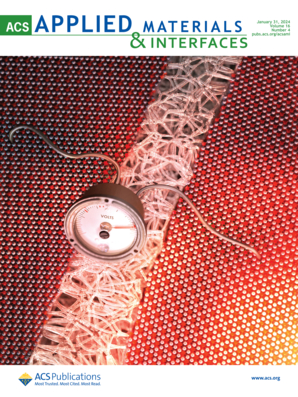Depolarization Field Controllable HfZrOx-Based Ferroelectric Capacitors for Physical Reservoir Computing System
IF 8.3
2区 材料科学
Q1 MATERIALS SCIENCE, MULTIDISCIPLINARY
引用次数: 0
Abstract
Reservoir computing as one of the artificial neural networks can process input signals in various ways, thereby showing strength in modeling data that changes over time. The reservoir is utilized in various fields because it is particularly energy efficient in learning and can exhibit powerful performance with relatively few trainings cost. This study emphasizes the significant advantages of the hafnium zirconium oxide (HZO) film in reservoir applications by controlling the depolarization field. The decay time of HZO-based ferroelectric memory devices is investigated, focusing on the impact of both ferroelectric layer thickness and interlayer (IL) thickness on physical reservoir computing system. Devices with HZO film thicknesses of 10, 15, and 20 nm were fabricated and characterized. Among these, the 15 nm HZO film demonstrated optimal thickness, exhibiting excellent ferroelectric properties, including enhanced orthorhombic phase (o-phase) formation and reliable short-term memory characteristics. When the optimized device for decay time is integrated into a reservoir computing system, it achieved a remarkable average accuracy of 93.42% in image recognition tasks, emphasizing its capability for high-precision computations.

用于物理存储计算系统的去极化场可控 HfZrOx 基铁电容器
本文章由计算机程序翻译,如有差异,请以英文原文为准。
求助全文
约1分钟内获得全文
求助全文
来源期刊

ACS Applied Materials & Interfaces
工程技术-材料科学:综合
CiteScore
16.00
自引率
6.30%
发文量
4978
审稿时长
1.8 months
期刊介绍:
ACS Applied Materials & Interfaces is a leading interdisciplinary journal that brings together chemists, engineers, physicists, and biologists to explore the development and utilization of newly-discovered materials and interfacial processes for specific applications. Our journal has experienced remarkable growth since its establishment in 2009, both in terms of the number of articles published and the impact of the research showcased. We are proud to foster a truly global community, with the majority of published articles originating from outside the United States, reflecting the rapid growth of applied research worldwide.
 求助内容:
求助内容: 应助结果提醒方式:
应助结果提醒方式:


